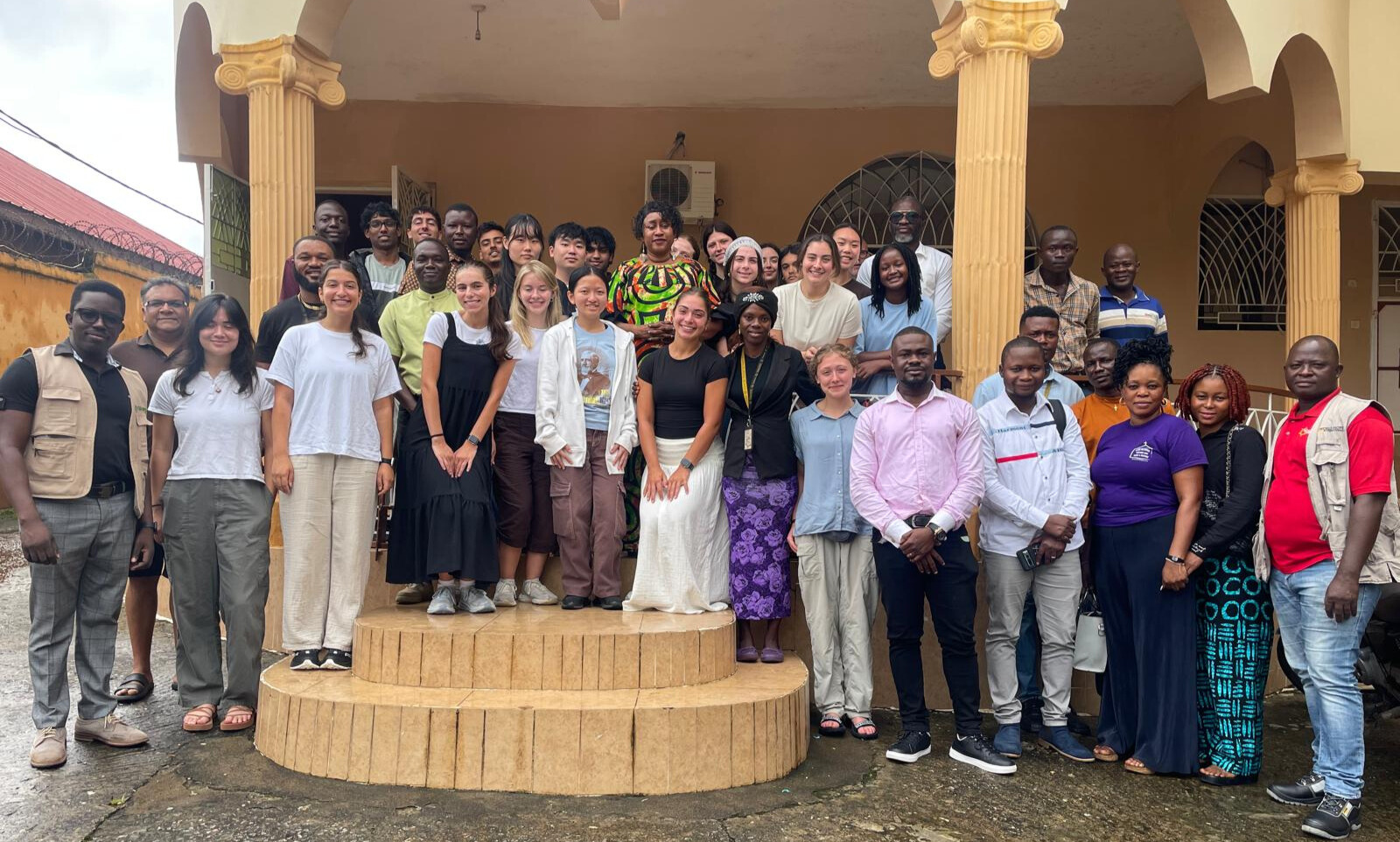
In Sierra Leone, where maternal and infant mortality rates are among the highest in the world, access to quality healthcare remains a daily struggle for many. Medical infrastructure is limited, resources are stretched thin, and too often, preventable conditions lead to devastating outcomes. But amid these challenges, a group of Global Social Impact Fellows from Lehigh University is working to change the narrative - one solution, one partnership, and one community at a time.
Since 2019, students from Lehigh's Impact Fellowship program have traveled each summer to Makeni, Sierra Leone, to co-create sustainable health innovations with local partners. This year, 23 Impact Fellows along with four faculty mentors (Khanjan Mehta, vice provost for Creative Inquiry; Eric Obeysekare, teaching assistant professor of computer science and engineering; Michael Kramp, professor of english; and Xuanhong Cheng, professor of bioengineering) will conduct fieldwork from August 3-22 in close collaboration with their partners, World Hope International and the Sierra Leonean Ministry of Health - Bombali District. Their mission is to continue advancing healthcare-focused projects with the goals of sustainable, scalable impact on Sierra Leonean communities and families.
"Our decade-long partnership with Lehigh University, built on mutual respect and a shared commitment to community-led development, has allowed us to create solutions rooted in the realities of life in Sierra Leone. It's always a joy to collaborate with such a dedicated team,” said Grace Kargbo, Country Director of World Hope – Sierra Leone.
That spirit of collaboration is echoed by leaders across the country’s healthcare system, who emphasize the value of uniting local expertise with global perspectives to address pressing health challenges.
“Overseeing healthcare for more than half a million people is no small task—but with partners like Lehigh University, we are not alone,” said Dr. Joseph Bangura, District Medical Officer, Bombali District. “The commitment of these students and faculty to work closely with our clinics, providers, and communities strengthens our efforts and drives meaningful progress in public health. Together, we conduct rigorous research, develop new innovations, and strive for tangible improvements in maternal and child health.”
The five interdisciplinary, multi-year projects traveling to Sierra Leone include:
CareAlert – Mentored by Khanjan Mehta, this team is developing wearable devices designed to improve maternal health outcomes. During fieldwork, students will deploy their latest prototypes, gather user feedback from mothers and healthcare professionals, and refine their technology to improve maternal health outcomes.The team has been awarded with a $5000 grant and access to workshops and mentorship as part of the VentureWell spring 2025 cohort of the E-Team Program.
AISHA (AI Strengthening Healthcare Access) – With mentorship from Eric Obeysekare, the AISHA team is developing a low-cost, offline, voice-enabled device designed to expand access to accurate medical information, especially in clinics with limited internet or electricity. During fieldwork, the team will conduct pilot testing and host a community workshop that brings together healthcare professionals, technologists, and local leaders to gather feedback and refine the device based on real-world needs. The project has been recognized with a $10,000 grant, supporting its potential to transform access to healthcare information in underserved settings.
SicklED – Under the mentorship of Xuanhong Cheng, students are building a reliable, low-cost diagnostic tool for early detection of sickle cell anemia—a genetic condition that affects a significant portion of Sierra Leone’s population. During fieldwork, the team will train local healthcare providers on how to use the device and strengthen partnerships within the medical community.
Mothers of Sierra Leone – Mentored by Michael Kramp and Fathima Wakeel, associate professor of population health, this interdisciplinary project uses documentary storytelling to spotlight community-based healthcare initiatives. The team is capturing stories that showcase antenatal care sessions, vaccination programs, nutrition counseling, and family planning services—bringing visibility to the everyday efforts that support maternal and child health.
Newtrition – this team is developing shelf-stable, nutrient-dense food products (muffins, juices, etc.) for the Sierra Leonean marketplace, to mitigate the effects of child malnutrition. Fieldwork will focus on product testing, gathering community input, and exploring sustainable local distribution options.
Evan Mazor '27, a computer science major, and a member of the AISHA team, expressed enthusiasm about the upcoming fieldwork experience: "We've developed ten smart speaker devices designed for healthcare professionals in Sierra Leone. I'm excited to introduce these to local clinics, receive valuable feedback, build relationships, and refine our technology to better serve the community."
For the students, these aren’t just projects—they’re commitments. Commitments to listening, learning, and creating meaningful change alongside the communities they serve. Each team returns not just with data and feedback, but with relationships, deeper insight, and a renewed sense of purpose.
By combining technical expertise with empathy and local knowledge, Lehigh’s Global Social Impact Fellows continue to prove that innovation is most powerful when it’s shared.
